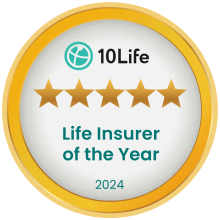Investments besides a savings account can include mutual funds, bonds, guaranteed interest certificates (GICs), annuity products, etc.
Investment Risk Assessment
Please answer the following questions
In how many years will you turn 65?
At age 65, what percentage of your total retirement savings do you expect to come from your MPF investment?
How would you describe your knowledge of investments?
Investments & savings:
Do you have any savings or investments for your retirement that are NOT a part of your MPF investment?
How much do you expect your investments to return on an annual basis? Please keep in mind that higher returns are typically associated with higher risk.
How much are you willing to risk:
How much of an annual investment capital decline would you be comfortable with in the case of a downturn in your portfolio?
How much are you willing to risk and how much fluctuation can you accept in your investments?
Click the corresponding risk levels of the below risk meter if you want to view other risk levels:
Hover over the corresponding risk levels of the below risk meter if you want to view other risk levels:
You have a need of predictable flow of income or have a relatively short investment horizon. Your tolerance for volatility is low and your primary goal is capital preservation.
Disclaimer
The results provided by the Investment risk assessment are for your reference only. The risk level is defined based on the information you provided in this assessment, such as your experience on investment, etc. It is not intended to guide you through any investment option range and does not take into account your personal financial circumstances or goals. Before choosing any investment options, we recommend that you seek independent professional advice to determine if the investment options meet your needs.
Investment involves risks and past performance is not indicative of future performance. Investment return may rise as well as fall.
It looks like you haven't answered all of the questions. Please go back and take another look.
YOUR GOALS: Taking this Risk Profile is a great idea start to your financial journey!
YOUR GOALS: It’s good that you’re thinking about your short- and long-term goals. Fill out this goals checklist to help keep on track.
YOUR SAVINGS: You have some great savings habits in place and understand how saving a small amount today can add up in the future. Keep it up!
YOUR SAVINGS: Setting aside money for a specific goal is great, but try setting aside a little extra each month and watch that money grow over time.
YOUR SAVINGS: Great job keeping a detailed budget! This is an important part of financial planning.
YOUR SAVINGS: You’re off to a great start with budgeting. Consider tracking your spending in more detail with this checklist.
YOUR INVESTMENTS: Great job staying on top of your investments! Use this retirement savings calculator to find out if your current investments will help you reach your retirement savings goal.
YOUR INVESTMENTS: You’re on the right track. Consider meeting with an advisor to review your investments.
YOUR INVESTMENTS: Are you on track to meet your retirement savings goals? Use our retirement savings calculator to find out.
YOUR SPENDING: Planning before spending is a great financial habit to have.
YOUR SPENDING: Spending just on the items you need is a good financial habit.
YOUR BORROWING: You’re doing a great job staying on top of your debt. Remember to pay off debt with higher interest rates first and find out why you should check your credit score from time-to-time.
YOUR BORROWING: You’re doing well by staying on top of your debt. Paying more than the minimum is key to becoming debt-free. Here are some tips to help lessen your debt.
YOUR FINANCIAL ADVICE: Reviewing your goals regularly with an advisor and building them into your financial plan is a great financial habit.
YOUR FINANCIAL ADVICE: Reviewing specific goals is an important financial habit. Be sure to discuss all your goals with an advisor regularly to make sure you’re on track to meet them.
YOUR GOALS: It’s important to start setting short - and long-term goals. Get started by filling out this goals checklist.
YOUR SAVINGS: You can boost your by savings strategy by paying yourself first. See how saving a little today can make a difference in the long run.
YOUR SAVINGS: You need to get on the savings train! See how saving a small amount can make a big difference over time.
YOUR SAVINGS: You’re doing a good job making ends meet, but if you start tracking your day-to-day spending with this checklist you may find a little extra money to set aside.
YOUR SAVINGS: Perhaps it’s time you began working on a budget. This checklist will give you tips for managing your day-to-day spending.
YOUR INVESTMENTS: There are a lot of different investment options depending on your needs. Meeting with an advisor is a great first step towards building your investment plan.
YOUR INVESTMENTS: There are lots of ways to invest your money. Start by learning about the different investment options available.
YOUR INVESTMENTS: If you brewed your own coffee instead of buying it every workday and invested the money you save in your RRSP you could have $88,471 in 30 years!
YOUR SPENDING: Try to curb spending on things you don’t need – any price is too high for something you’ll never use. You can use that money to build your savings and investments instead.
YOUR SPENDING: Try to reduce your impulse shopping – this can help boost your savings and leave money for other investing.
YOUR BORROWING: Making the minimum payment is typically not enough. Try to work on paying more off. Here are some other tips to help you lessen your debt.
YOUR BORROWING: Keeping up with debt can be tough. Here are some debt management tips to try.
YOUR BORROWING: Getting control of your debt is an important part of managing your money. Take a look at 5 easy tips to get you thinking even more about your spending and savings.
YOUR FINANCIAL ADVICE: It’s important to review your goals. Think about setting up some regular meetings with an advisor to review your goals and make sure you’re on track to meet them.
YOUR FINANCIAL ADVICE: It’s important to set goals and review your progress. Think about working with an advisor to help make sure you’re on track.
An advisor can give you advice and suggest solutions to help you pay off debt sooner. Speak with an advisor today.
A TFSA is a great way to help you save for a home, a big purchase, an emergency fund,
Open a TFSA to help you save for your home. With the Home Buyers’ Plan, you can borrow up to $25,000 from your RRSP to buy or build your first home.
Open a TFSA to help you save for your big purchase.
A TFSA is a great way to save for an emergency.
If you don't already have one, open an RESP to save for your child’s education. You will automatically be eligible for the Canada Education Savings Grant.
Regularly putting money in an RRSP is a smart way to save for retirement.
Use this RRSP calculator to find out how putting even just a little more in your RRSP every month can make a big difference.
Selling your home or other property may not be enough to cover your retirement. Think about opening an RRSP or other retirement investment account.
It’s never too early to start planning for your retirement. Start putting money in an RRSP or other retirement investment today.
Building a financial plan is a great first step to help you manage your money better so that you can reach your longer-term goals.
When setting goals, you should also think about building a financial plan that will help you stay on track to reach those goals.
Read 5 things you may not know about TFSAs to find out why they can be a great way to top-up your emergency fund.
Consider other types of insurance such as: life insurance, personal health insurance (health and dental benefits), critical illness insurance, long term care insurance, disability insurance, mortgage/creditor insurance,
Consider putting in place: a will/power of attorney.
Great to hear that you’re already working with an advisor. Financial advice can make a big difference in how your money grows.
Getting sound financial advice and working with an advisor to build a financial plan that takes your needs into account can help you reach your goals and secure your financial future.
MONEY MASTER
Money Master
Money
master
You save smartly, spend sparingly and invest intelligently. You set your goals, and you do what it takes to reach them. Stay the course, but don’t ignore new opportunities for saving and investing.
SEASONED SAVER
Seasoned Saver
Seasoned
saver
You're one savvy saver. You've got some effective saving strategies and know how to make debt disappear. With a little advice, a little guidance and a little more discipline, you can reach financial mastery.
SAVER-IN-PROGRESS
Saver-in-progress
Saver-in-
progress
You’re pretty sure you could be doing better! You’ve got what it takes to master your money – but you'll need patience, hard work and some good financial advice to get there.
FINANCIAL BEGINNER
Financial Beginner
Financial
beginner
You don’t have a road map – you just take each turn as it comes. That might be fine for today – but what about tomorrow? Maybe it’s the financial advisor in us speaking, but a little advice might be a good place to start.



